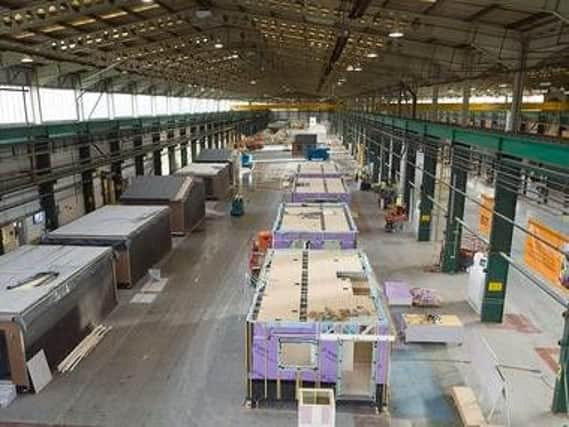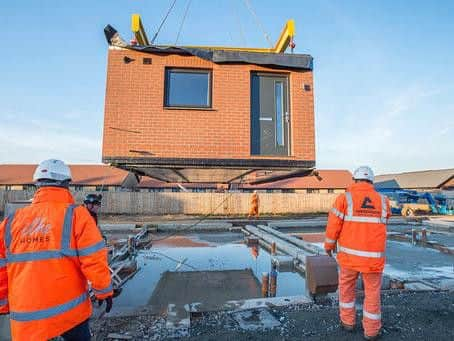Hundreds of jobs to be created at Yorkshire housebuilder after £30 million investment


Knareborough-based ilke Homes, which makes modular homes on a factory assembly line, aims to ramp up production from 2,000 to 5,000 dwellings within the next five years.
The homes are said to be 20 per cent more energy efficient than traditionally-built new builds and create 90 per cent less waste.
Advertisement
Hide AdAdvertisement
Hide AdIt is the first time that Government agency Homes England has directly invested into a modular housing factory.


The site currently employs 570 people, but this is expected to increase to 650 by the end of the year.
Executive chairman Dave Sheridan said the investment would bring in more private capital “creating hundreds more skilled jobs allowing us to build more homes, more quickly for first-time buyers”.
Mr Sheridan added: “We want to continue driving efficiency, quality and sustainability within the housebuilding industry and see this as a fantastic signal to others wishing to do the same.”
Advertisement
Hide AdAdvertisement
Hide AdThe “transformational” funding will allow production to be scaled up, increasing the number of homes that roll off the assembly line from two to eight a day and bringing down manufacturing costs in the process.
Housing Minister Esther McVey said the north of England has the potential to “lead the world” by using modern ways of building homes.
She said the industry could be worth up to £40 billion and provide up to 80,000 jobs.
The investment was a “significant step forward in the development of a new “construction corridor” building homes that were “higher quality, greener and built to last”.
Advertisement
Hide AdAdvertisement
Hide AdMark Farmer, who co-authored the government- commissioned Farmer Review, said net zero carbon targets could not be achieved through the traditional construction supply chain which "wastes much of what it builds".
He said manufactured homes create less waste because "everything can be made to measure".
The industry also needs to move away from concrete, which accounts for eight per cent of the world's carbon dioxide.
He said: "It’s hugely important to consider R&D into material innovation. New materials like graphene are likely to play a critical role going forward.
Advertisement
Hide AdAdvertisement
Hide Ad"Similarly, timber – as the most sustainable construction material on the planet - surely has to be used more as it is in other countries, but has to be proven to be safe from a combustibility perspective. With the right investment into manufacturing assurance, R&D and testing I think it’s possible to square that circle in the future.”